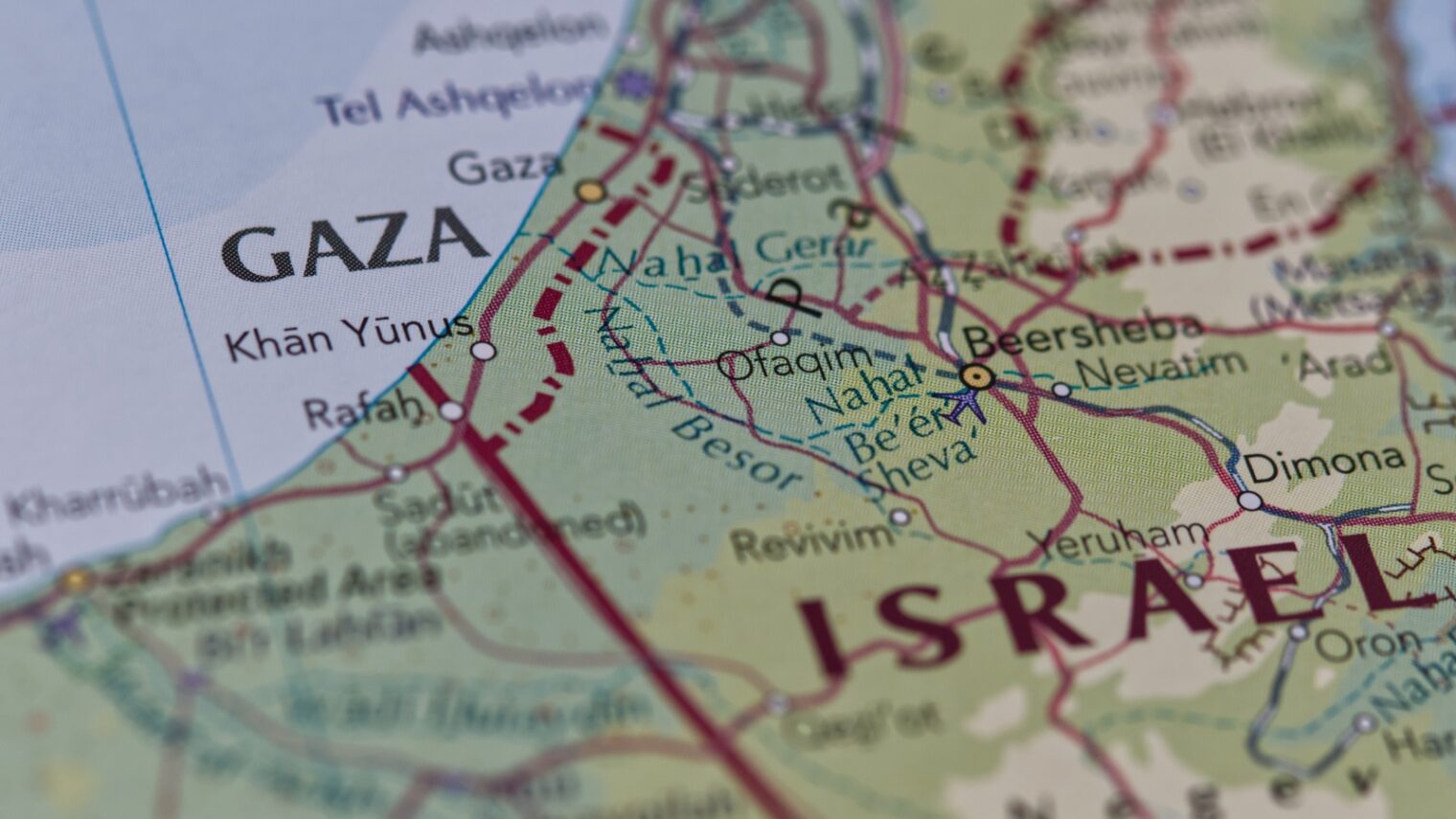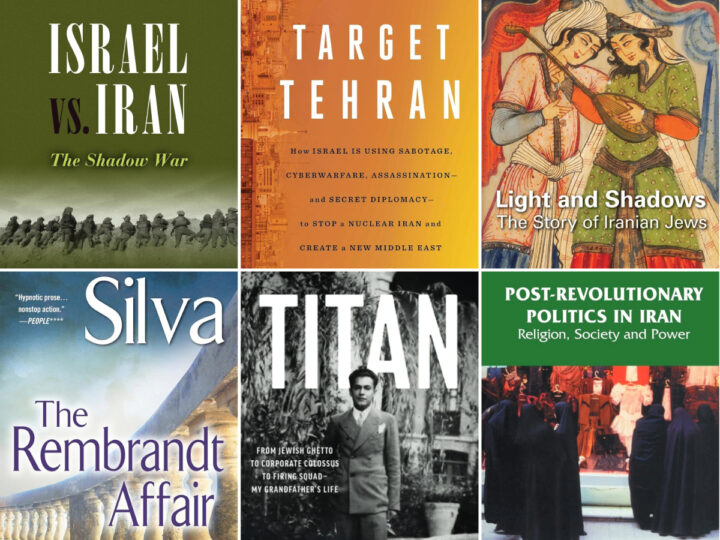The Israeli-Palestinian conflict has the dubious honor of being the highest-profile conflict in the world, and the war now waging between Israel and Hamas means it is getting more headlines than ever before.
But to better understand the conflict raging for over 100 years in the Middle East, we recommend getting past the headlines and doing something almost unheard of these days – turning to a proper book.
We’ve compiled reading suggestions that encompass different aspects of the conflict, complete with historical tomes, personal memoirs and works of fiction.
They represent varied and at times clashing viewpoints and perspectives, but these, we believe, open up the discussion and provide space for nuanced thought.
1. Enemies and Neighbors: Arabs and Jews in Palestine and Israel, 1917-2017 by Ian Black

The Israeli-Palestinian conflict is over 100 years old, and a comprehensive analysis from its very beginning to recent days is an excellent way to get to grips with it. Former Guardian Middle East editor Ian Black tackles this long history with a thoroughly researched historical and political analysis, drawing on archival materials, oral testimonies and his own experience reporting from the ground.
2. Year Zero of the Arab-Israeli Conflict 1929 by Hillel Cohen

Hebrew University of Jerusalem’s Prof. Hillel Cohen specializes in Jewish-Arab relations in Mandatory Palestine, and his book focuses on a long-overlooked landmark year in the history of the region.
In the summer of 1929, a week of rioting saw 133 Jews killed by Arabs, and 116 Arabs killed by British authorities trying to suppress the rioting. Basing himself on previously unearthed historical materials, Cohen explores how Jewish and Arab players viewed the events, arguing that this wave of violence was what consolidated the national character of the conflict to come.
3. Palestine 1936: The Great Revolt and the Roots of the Middle East Conflict by Oren Kessler

Another book exploring the roots of the conflict in Mandatory Palestine is Oren Kessler’s work on the 1936-1939 Arab revolt against British rule. Kessler shows how the revolt unified formerly fractured parts of Arab society on the one hand, while driving Jewish leadership to the realization that they would have to live by the sword on the other. This book is based on archival research spanning various continents and languages and makes for fascinating reading on a less well-known stage of the conflict.
4. One Palestine, Complete: Jews and Arabs Under the British Mandate by Tom Segev

For a good overview of the whole period of British rule in Mandatory Palestine, look no further than prominent historian Tom Segev’s tome on the subject. Segev explores the years 1917 to 1948 within the framework of a declining British Empire and the rise of two conflicted nations in its stead, shedding new light on power relations, people and clashing narratives.
5. 1948: A History of the First Arab-Israeli War by Benny Morris

Moving on from Mandatory Palestine, historian Benny Morris explores the 1948 war that immediately followed the establishment of the State of Israel. One of the “new historians” in Israel who has repeatedly gone against the traditional line of research on the subject, here too Morris examines things with a new eye. What both admirers and critics can agree on is that the book is meticulously researched and provides a fascinating account of both tactic military operations and the grand politics that accompanied the war.
6. All the Rivers by Dorit Rabinyan

Dorit Rabinyan’s fictional love story between an Israeli woman and a Palestinian man in New York is famous in Israel for being banned by the Ministry of Education. Despite being critically acclaimed and well received in literary circles, its topic was found unsuitable for teens studying literature in schools. Its blacklisting served to propel the book back into the bestsellers list. A fascinating read both in terms of the fiction in it – which highlights the shared experiences that both unexpectedly unite Jews and Arabs , and the controversy that surrounded it.
7. The Six-Day War: The Breaking of the Middle East by Guy Laron

The 1967 Six-Day War is probably one of Israel’s most famous victories, and as such studied and examined from many different angles. International relations specialist Guy Laron brings a new viewpoint to this monumental episode in the history of the conflict, placing it in a global context. He highlights the role the American and Soviet superpowers had in bringing the war about, as well as the role of the different warring parties, including Israel, Egypt and Syria.
8. Letters to My Palestinian Neighbor by Yossi Klein Halevi

In a series of letters to an anonymous Palestinian neighbor, Israeli author Yossi Klein Halevi tries to reach beyond the wall separating Israelis and Palestinians, both on the ground and in their minds. Klein Halevi explains the reasons he immigrated to Israel, what it means to him, and the range of emotions that living in it brings. He does all this while recognizing his addressee’s viewpoint and suffering, giving hope that empathy and feelings could help pave the way for a better future.
9. In Search of Modern Palestinian Nationhood by Matti Steinberg

Matti Steinberg is one of the leading Israeli experts on Palestinians, having served as a senior adviser to the heads of intelligence branches in Israel on the matter. In his book, he examines mostly Arabic primary material to explore the different aspirations and perceptions of post-1967, modern Palestinian nationalism and their impact on the way in which Palestinians view Israel, ending with a series of policy suggestions for Jerusalem.
10. The Israel-Palestine Conflict: Contested Histories by Neil Caplan

Canadian historian Neil Caplan has researched various aspects of the Israeli-Palestinian conflict in a career spanning over 40 decades. In this volume, he explores the historical facts of the conflict as well as the factors that have prevented its resolution. He also highlights the complexities that gave rise to the conflict’s contested histories, supplying readers with a multifaceted and thoughtful account.
11. From Beirut to Jerusalem by Thomas L. Friedman

A long time ago, Thomas Friedman was The New York Times reporter in Beirut and Jerusalem, and his memoir of this period is fascinating. Traveling and reporting from the region as it went through violent and turbulent times, his detailed description of the area and the situations he encountered are all presented in a flowing, journalistic style, making it an easy but far from superfluous read on a difficult topic.
12. Once Upon a Country: A Palestinian Life by Sari Nusseibeh

Palestinian academic, philosopher and official Sari Nusseibeh is well-known for his political activism, as well as for the many, sometimes contradictory positions that he’s held – from being the PLO’s representative for East Jerusalem to co-authoring a peace plan together with Ami Ayalon, the former Shin Ben director. Born to a famous Palestinian Jerusalemite family, Nusseibeh strings together the personal, political and national in his memoir, in which he outlines the failed Palestinian national struggle and the hope for a peaceful resolution to the conflict. His book was even translated into Hebrew, giving Israelis a peek at the life of people living so near, yet so far, from them.
13. The Hilltop by Assaf Gavron

Assaf Gavron’s novel is exceptional in that it manages to treat a challenging subject in a funny way. The book tells the story of residents of a West Bank settlement, satirically examining their private lives, family and social dynamics, and the geopolitical complexities they both create and entail. It is witty, thought-provoking and anything but obvious, giving readers a fresh and honest look at Israeli society.
















